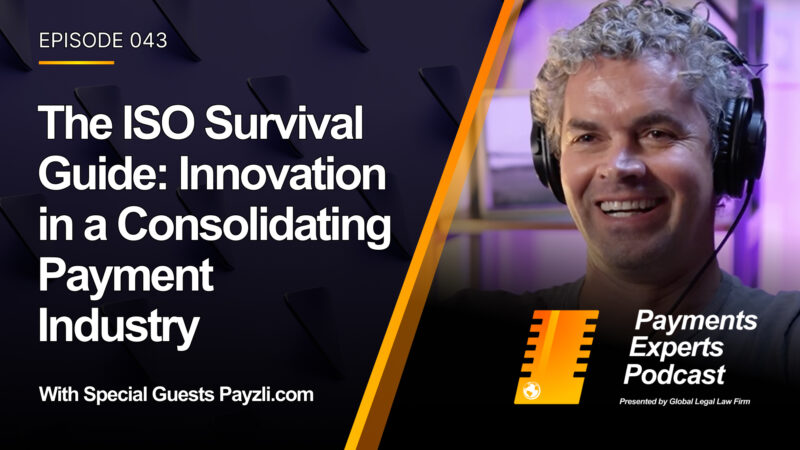PEP Episode 025 — New FTC Rule Prohibits Non-Compete | With Shubhra Sharma Esquire
- May 3, 2024
Podcast Description:
Discover the legal labyrinth of employment agreements untangled by Shubhra Sharma, Commercial and Transactional Attorney with Global Legal Law Firm, who sheds light on the seismic shift in the corporate world following the FTC’s sweeping ban on non-compete clauses. This pivotal rule, casting aside the traditional shackles on workers across the board, promises to redefine the competitive landscape and grant employees unprecedented freedom to navigate their careers. Our enlightening discussion with Shubhra navigates the nuances of this new landscape, where every kind of worker—from the C-suite to unpaid interns—is affected, and how businesses can pivot to protect their interests without stepping over the new legal boundaries.
With litigation looming on the horizon, Shubhra weighs in on the strategies companies may deploy to fortify their sensitive data and proprietary secrets in the wake of these prohibitions. She meticulously demystifies the FTC’s intent to eliminate unfair trade practices and foster a fairer competitive environment, ensuring you walk away with strategic insights on both the implications for existing contracts and the drafting of future agreements. Whether you’re an employer, an employee, or simply fascinated by the intricacies of corporate law, this episode is your guide through the complex aftermath of a landmark decision set to transform the professional world. Visit us today: https://www.globallegallawfirm.com/
Podcast Transcription
Shubhra Sharma (00:00):
Hi, I am Shara Sharma and I’m a corporate Associate attorney at Global Legal Law Firm. Today we are here to talk about the Federal Trade Commission’s new final rule with regard to a ban on non-compete agreements with employees, including senior executives who make over 150,000 US dollars, or, uh, any other employees who make below 150,000 US dollars, including any other workers such as unpaid interns, appre apprentices, and other uh, employees. Today we are going to talk about a new rule that was implemented by the Federal Trade Commission, which bans non-compete agreements and clauses nationwide, uh, for any employees or workers or senior executives employed by any companies. Basically, what this rule says is that for a senior executive who is, uh, somebody who is making over 150,000 US dollars, you may not, uh, enforce any further non-compete agreements, uh, with them. Uh, does that mean that the, uh, previous agreements that you have with the senior executive is not enforceable anymore?
Shubhra Sharma (01:12):
No. You can, uh, still enforce an older non-compete agreement with the senior executive. Um, but when it comes to somebody who is not a senior executive, for example, a worker who could be somebody who is paid or unpaid, uh, such as an apprentice, uh, an intern, uh, an employee who pay gets paid under $150,000, uh, when it comes to such workers, you will not be able to enforce any previous non-compete agreements or any future non-compete agreements. Basically, the idea behind, uh, doing this for the FTC was, uh, to ban any kind of unfair trade practices, which do not allow, uh, employees to, uh, pursue any other careers in the sim in a similar business. And they believe that any such, uh, uh, provisions relating to non-compete, uh, basically, uh, clauses and agreements is because they believe that it is, uh, an unfair, unfair method of competition, which violates, uh, the provisions of the Federal Trade Commissions Act.
Shubhra Sharma (02:19):
This final rule, uh, even though it’s called a Final Rule, doesn’t come into play until 120 days after it is published in the Federal Register, which gives us a little bit of time to, uh, get, uh, our, our employers in place, uh, to check on what they would need to change in respect of their agreements with their senior executives or their workers and employees. However, we are Ansys anticipating a lot of, uh, groups to, to pursue litigation. Um, such groups, uh, would probably be pro-business groups would want to, uh, to challenge this, this, uh, law, uh, that bans non-compete agreements. So what do you do if, um, if you would like to protect your company’s interests? Are you not allowed to have any kind of, uh, protections, uh, as an employer? Uh, what we are, uh, expecting to see is, uh, more wa water type, uh, provisions in, uh, your proprietary confidential and non-disclosure agreements, which would probably, uh, have to be drafted to protect you as an employer from, um, from an employee using this information against you. So, for example, if you have a trade secret that you would like to protect, you would want to include this in your confidentiality agreement. But as far as non-compete agreements go, you will not be able to enforce those against, uh, an employee, whether it is a senior executive or somebody who, uh, is paid lesser than $150,000 and could even mean somebody who is unpaid. Uh, hi. I am Shara Sharma and I’m a corporate associate attorney with Global Legal Law Firm.
Recommended Podcasts
-

PEP Episode 044 — Banking on Innovation: The Evolution of Payments with Tom Lineen of WestTown Payments
Introduction Tom Lineen brings 25 years of payments industry wisdom to the table as...
Read More -

PEP Episode 043 — The ISO Survival Guide: Innovation in a Consolidating Payment Industry | Guests Payzli.com
Introduction The payment processing industry continues to evolve at a breakneck pace, with smaller,...
Read More -

PEP Episode 042 — The Future of ISOs: Adapting or Dying? | With Special Guest David Leppek of SignaPay
Introduction The traditional payment processing landscape is undergoing seismic shifts, and this provocative discussion...
Read More